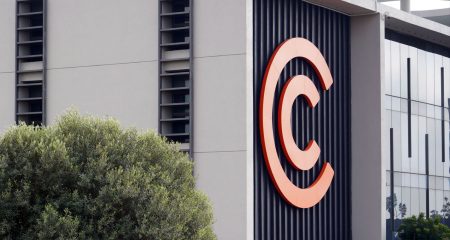
[By Duncan McLeod]
Dimension Data SA chairman Andile Ngcaba is quietly building a new type of telecommunications business under his Convergence Partners investment vehicle. From satellites to undersea cables to fibre, he’s out to change the economics of an industry.
The plush office building at 33 Fricker Road in Johannesburg is a hive of activity. It’s the location of Convergence Partners, the Ngcaba-controlled investment vehicle led by former investment banker Brandon Doyle.
In the five years since the company was founded, it has made significant investments. It used to house Ngcaba’s stake in Telkom — now sold — but it’s three of its more recent investments that are much more exciting.
The first is Seacom, along Africa’s east coast, in which Convergence Partners has a 15% stake. Seacom was the first international cable to serve SA since the Telkom-led Sat-3 went live in 2002. When it launched in 2009, it drove down international bandwidth prices by as much as 90% and allowed Internet service providers to introduce relatively affordable uncapped fixed-line broadband products for the first time.
The second investment is in a satellite project, Intelsat New Dawn, which promises to bring communications access to parts of the African continent that aren’t well served by traditional telecoms networks. After an aborted first attempt at launch, New Dawn blasted into space last Friday.
The third project in which Convergence Partners is involved is FibreCo, a venture with two other partners: Cell C and Dimension Data’s Internet Solutions. FibreCo is investing R5bn-plus in a fibre network comprising up to 14 000 km of high-capacity infrastructure connecting SA’s towns and cities.
Together, these investments point to Ngcaba — who began his career as a technician at Philips before involving himself actively in ANC politics and later in government as director-general of the department of communications — becoming a significant player in wholesale telecoms in SA and the broader region.
I first met Ngcaba in 1994 and have watched his progress, first in the public sector and now as a key player in the private sector, with a great deal of interest. He’s a shrewd operator and a passionate technologist who has never been afraid to take a risk or question the status quo. He’s courted controversy, too, not least because of his purchase of a stake in Telkom soon after resigning from government.
Last week I met Arif Hussain, who heads the FibreCo joint venture. Hussain describes Ngcaba, whom he has known for years, as wanting to lead the country through a “quantum leap” in how it uses technology.
That means building so-called “open access” networks, a departure from the traditional telecoms model where operators hold tightly onto their own infrastructure, controlling supply and attempting to keep costs high. Hussain says Ngcaba isn’t building a telecoms company in the traditional sense.
Rather, he says, projects such as FibreCo and Seacom, in particular, are leading to an era in which operators and service providers are more open to sharing infrastructure to keep costs down, ending artificial supply constraints and creating a world awash in cheap bandwidth.
“We all know Telkom won’t be the one to disrupt the market,” Hussain says. “Seacom’s business model works, even though prices have come down. It’s not trying to make the most money it can today for as long as it can. It’ll make its money by filling up the pipe.”
The economics of providing telecoms infrastructure need to be turned on their head if SA wants to participate meaningfully in the information economy. Whatever people think about Ngcaba, I reckon he’s onto a winning ticket.
- Duncan McLeod is editor of TechCentral; this column is also published in Financial Mail
- Subscribe to our free daily newsletter
- Follow us on Twitter or on Facebook




